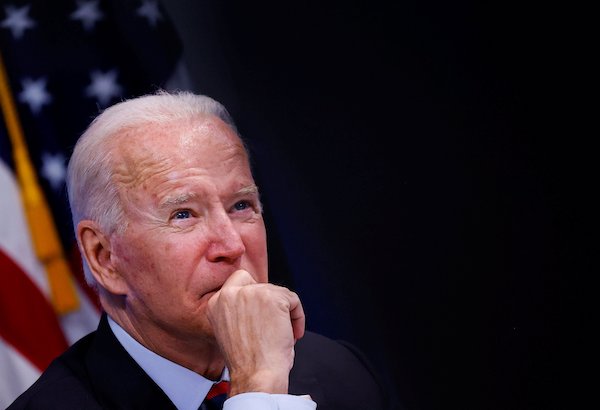NEW YORK — As Eric LeCompte participated in the Sept. 22 COVID-19 summit convened by President Joe Biden, he recognized a renewed sense of urgency from global leaders.
“It’s clear that for the most part, everyone has the memo that if we don’t deal with vaccine distribution — and getting personal protective equipment to developing countries as quickly as possible — it means that we’re going to continue to see new variants and variants that are resistant to current vaccines,” LeCompte, the executive director of Jubilee USA Network, told The Tablet.
In an address to open the virtual summit — held in conjunction with the United Nations General Assembly in New York — Biden announced that the U.S. is buying another half a billion doses of the Pfizer-BioNTech vaccine to donate to low- and middle-income countries, bringing the nation’s COVID-19 vaccine donation total to more than 1.1 billion.

The financial commitment was one of several made by Biden, though the bulk of the address emphasized the need for all parties involved to step up — including other governments, the private sector, civil society leaders, and philanthropists.
“We’re not going to solve this crisis with half measures of middle-of-the-road actions,” Biden said. “This is an all-hands-on-deck crisis and the good news is we know how to beat the pandemic. Vaccines, public health measures, and collective action.”
The president specifically called on other high-income nations to “deliver on their own ambitious vaccine donations and pledges,” and announced a new European Union-United States partnership to hold each other accountable.
Biden identified multiple “supercharging efforts” that need to take place starting with ramping up vaccine production to vaccinate the world. Other priorities are the donation, delivery, and administering of the vaccine, solving the global oxygen crisis, increasing the accessibility of other treatments, and the availability of public health tools like masks and tests.
To date, there have been more than six billion COVID-19 doses administered worldwide. However, more than 70% of all vaccine doses have been administered in just 10 countries. This disparity has led Catholic leaders worldwide — including Pope Francis and the United States Conference of Catholic Bishops — to call for vaccine equity.
The commitments made at the summit aim to get 40% of the population in developing populations vaccinated by the end of the year, what LeCompte considers a “very, very hard commitment” to meet given the challenges that exist.
“The more realistic commitment is to have 70% of the world’s developing population vaccinated by mid-year next year, but that’s still a ways out, and as important as the progress is, I’m still worried whether or not that’s going to be fast enough,” LeCompte said.
Chief among the challenges is the logistics of getting COVID-19 vaccine doses to developing nations and subsequently getting them in people’s arms. LeCompte notes that vaccine donations and production aren’t enough “if we don’t have the actual infrastructure in developing countries to deal with these issues.”
“There’s a lot more work that needs to be done, a lot more money that needs to be raised to be able to support the ability to get shots in the arms, as well as deal with all of these other vital healthcare infrastructure needs,” LeCompte said.
In the private portion of the summit after Biden’s opening address, Vice President Kamala Harris pledged $250 million to help the world with better infrastructure, as well as treatments and PPE, according to LeCompte.
Other commitments announced by Biden include $370 million to support administering vaccine doses globally, $380 million to assist in global distribution to the areas with the greatest need, and providing $1.4 billion for oxygen support, expanded testing, and strengthening healthcare systems.
He also called for a commitment to donating COVID-19 vaccines with no political strings attached and supporting COVAX — the World Health Organization-backed international vaccine initiative — as the main distributor.
In a conversation with The Tablet, LeCompte highlighted that despite the substantial commitments made at the summit, there are “make or break decisions” still to be made by the International Monetary Fund (IMF) and G-20 in October, as well as the World Health Organization in November, related to financing, distribution, and waiving vaccine patents to allow poorer countries to produce doses.
